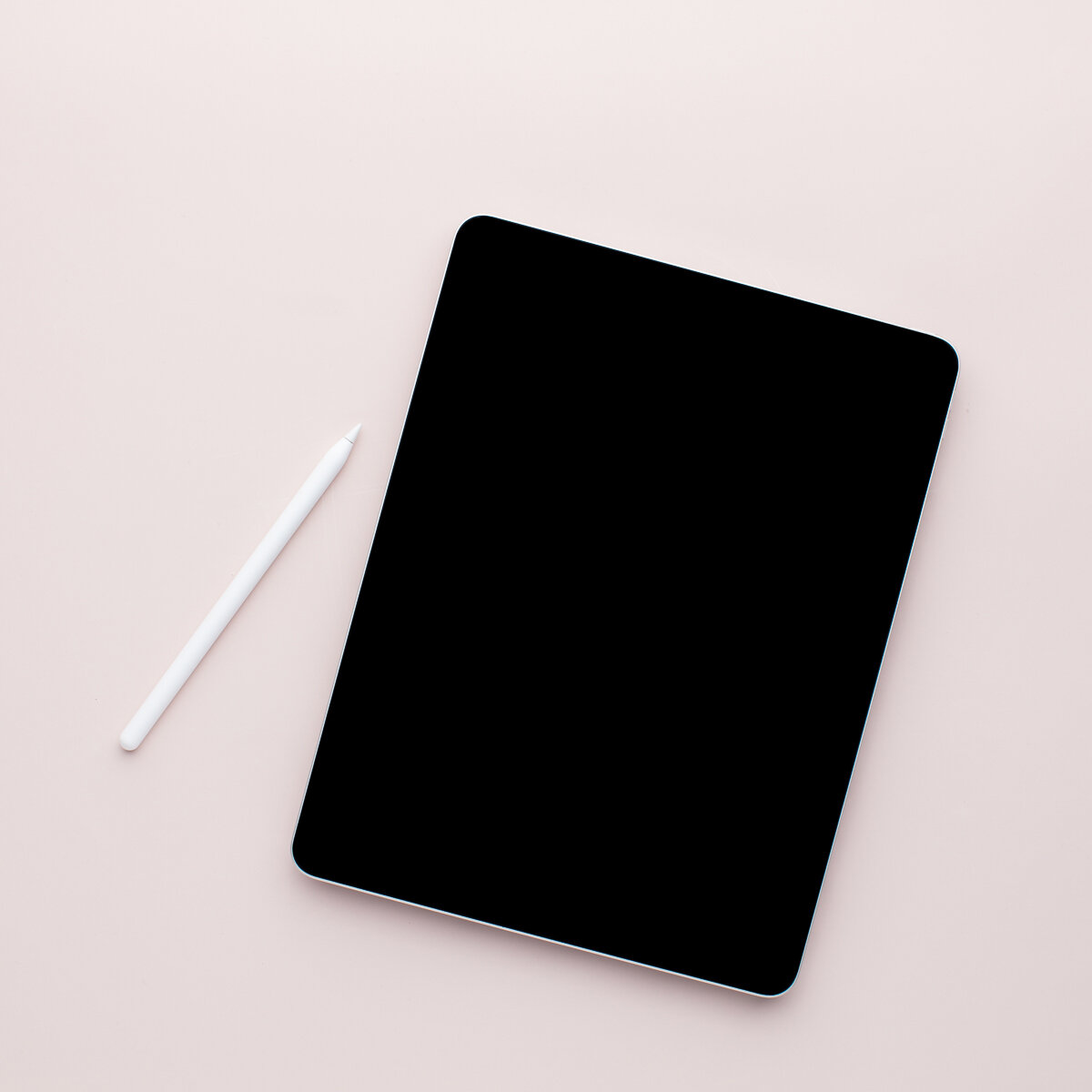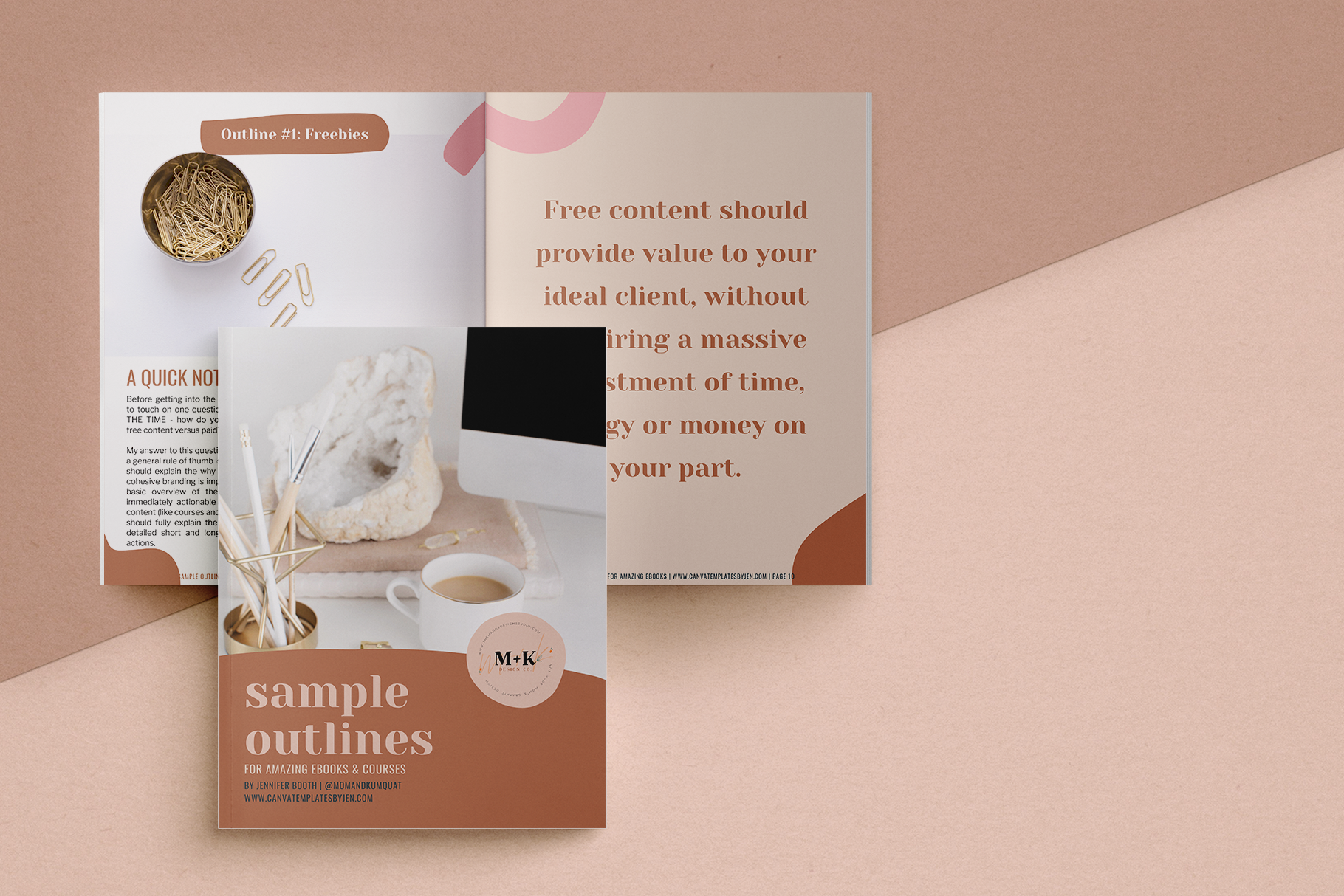10 Tools and Resources for Creating Your Next Ebook
This post may contain affiliate links. I may receive a commission for purchases made through these links (at no cost to you, obvi 😉).
Writing a successful ebook involves more than choosing what platform to publish on
If you pop the phrase "tools for creating ebooks" into Google, you'll find all sorts of apps and platforms for publishing your completed ebook - but not many tools and resources for actually organizing, writing and designing it.
That lack of direction alone might be enough to turn you off of creating an ebook - much to the detriment of your biz. Lucky for you, as a professional ebook designer (read: NERD), I've used LOTS of different tools over the years - and I've compiled a list of my (current) favorites to save you some time, effort and heartache.
Want more? Pop your email into the box at the bottom to get my full list of 60 tools and resources for planning, researching, writing, designing and marketing your ebooks.
1. Planning: Trello
Confession: I am one of those extremely right-brained people who tends to get distracted by trying to tackle a dozen different projects at once. I call it ADOS - ‘Attention Deficit Ooooh, Shiny!’ These projects all sound fun and exciting, sometimes making it really hard to focus on any one thing - which inevitably leads to some of them getting lost, or me burning out.
Trello has been a game changer for me. I can keep track of just about anything and everything with this app (I’m even using it to map out my upcoming course on creating an ebook for your business as a passive income stream). PLUS, it’s free to use, although you can purchase all kinds of nifty power ups to take your planning to the next level.
2. Planning: Ebook Frameworks Guide
This guide has two easy to follow frameworks you can model your own ebook on - one for free content (i.e. an ebook that you’re going to use as an opt-in), and one for paid content (like a course book or a full length ebook you plan to sell). And did I mention that it’s free? Snag your copy here.
3. Planning: Mind Node
I’ve mentioned this app before, and that’s because I LOVE it. It’s an iOS app that you can use to create pretty, organized mind maps of your ideas. Each idea goes into its own bubble, and you can drag the bubbles around to reorganize as needed.
4. Research: Quora
Regardless of how much you think you know about your chosen topic, you need to do a little research before you literally write the book on it. You should also make sure it’s a topic people are actually interested in learning about. Google is a great resource for collecting data, but when vetting your topic, Quora is a better bet. See what kinds of questions people are asking around your topic, and skim the answers to see what others have to say.
5. Writing: Google Docs
I type ALL of my content into Google Docs before pulling it into wherever it’s going to be published. This way, if something ever happens to my website / blog / computer / design files, the content itself is all safely backed up in Google’s cloud. It also means that I can access it from anywhere and work on the go (i.e. I can edit next week’s blog post from my phone while I’m waiting to pick my daughter up from summer camp). You can use Google Docs for free with any Google (Gmail) account.
6. Writing: Laura Belgray / the Talking Shrimp blog
I’ve considered myself a writer for most of my life (I told my third grade teacher that I would one day be on her ‘Famous Authors’ board). But with a degree in journalism, my writing can sometimes come across as dry and stiff.
I started following Laura Belgray of Talking Shrimp a few months ago, after enrolling in The Copy Cure, and my copywriting has improved substantially since. It’s sort of like Exlax for my copy - any time I’m feeling uninspired, I skim through some of her posts or emails and things loosen up almost immediately.
Every business owner who does their own copywriting should invest in a course to improve their skills, and Laura’s Storytelling Hero course gets my vote hands down.
(Copy Cure is an amazing course as well, but since it only opens once a year, it’s harder to get into - if you’ve missed Copy Cure enrollment for the year, Storytelling Hero is a great option to get you started.)
This screenshot shows my Modern Vintage Template Kit, designed in Canva and easy to customize.
7. Design: Canva
I’ve seen lots of posts about how Canva isn’t ideal for ebooks, but I gotta say, I disagree. They’ve upped their page limit to 100 (it used to be 30), and while it doesn’t have quite the functionality of InDesign, it’s also a helluva lot easier to use as a non-designer - especially if you invest in a ready to use template kit.
You can find all sorts of amazing photos on Pexels, including this gorgeous, clean flat lay by Jess Bailey Designs.
8. Design: Pexels
One of the first and most important lessons I learned in journalism class was about the value of images. When laying out a newspaper or webpage, you should always have a clear, eye catching image “above the fold” - same goes for your ebook. There are lots of stock photography sites out there, but most charge per image or a subscription fee. Pexels is 100% free, and you don’t have to worry about crediting the photographer (although providing a link back to their page is a nice thing to do if you can).
9. Marketing & Sales: Shopify
I have used Shopify to sell both digital and physical products for three years, and I love it. You can sell and auto fulfill digital products by adding an app to your Shopify site via the Shopify App Store (I use Digital Kit, because it’s free and easy, but have heard good things about Sky Pilot as well).
If you have an existing website and just need a service for payments and fulfillment, you can use Shopify’s “Buy Button” to embed a purchase button on any website. Check out my Templates page for an example of Shopify’s Buy Button in action.
10. Marketing & Sales: ConvertKit
ConvertKit is probably my new favorite toy - mostly because they recently launched ConvertKit Commerce, allowing digital creators to sell their products directly through ConvertKit. It's still in beta, but you can request an invite by signing up for ConvertKit via the link above, then shoot an email to help@convertkit.com to ask for a beta invite. It’s simple and easy to use, and it means that you can run your sales through the same service as your email marketing, potentially cutting down on your costs and the number of tools to manage.
I hope these tools help you plan, write, design and sell an amazing ebook (or that you at least find them fun to play with). I’d love to hear about the tools and resources you use when creating your ebooks - drop your thoughts in the comments below, and be sure to check out my brand new free masterclass - the first session is scheduled for next week!
And if you’re looking for even more resources for creating ebooks, snag my full list of 60 ebook tools and resources just by popping your email into the box below. You can thank me later.




